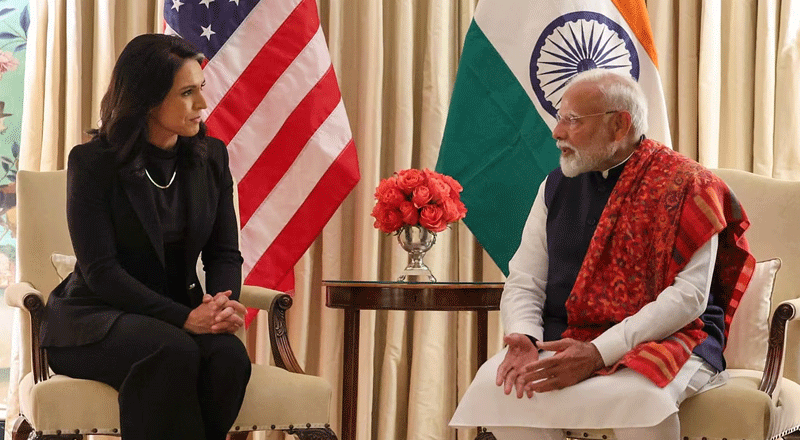- As the Israel-Hamas conflict stretches into its eighth month with no clear end in sight, Prime Minister Benjamin Netanyahu has taken a decisive step—dissolving the war Cabinet.
- Established just days after Hamas initiated hostilities on October 7th, 2023, the war Cabinet was intended to streamline decision-making on critical military and strategic matters.
- Reports emerged of strained relationships within the Cabinet, with Gantz eventually withdrawing in June.
- His departure, characterized as “complex and painful,” underscored deep-seated disagreements over Israel’s handling of the Gaza conflict.
- Netanyahu’s decision to dissolve the war Cabinet is widely viewed as a strategic maneuver to preserve coalition stability and avoid yielding to extremist pressures.
- Critics argue that Netanyahu’s preference for maintaining a prolonged conflict serves his political interests, deflecting attention from domestic challenges and potential corruption investigations.
As the Israel-Hamas conflict stretches into its eighth month with no clear end in sight, Prime Minister Benjamin Netanyahu has taken a decisive step—dissolving the war Cabinet. This move comes amid escalating tensions and internal divisions within Israel’s leadership, signaling a pivotal moment in the country’s approach to the Gaza crisis.
Established just days after Hamas initiated hostilities on October 7th, 2023, the war Cabinet was intended to streamline decision-making on critical military and strategic matters. Led by Netanyahu and including Defense Minister Yoav Gallant, the group also featured key figures like Opposition leader Benny Gantz and Strategic Affairs Minister Ron Dermer. However, what began as a symbol of unity quickly devolved into a forum marred by political infighting and disagreement.
Reports emerged of strained relationships within the Cabinet, with Gantz, a political rival of Netanyahu, eventually withdrawing in June. His departure, characterized as “complex and painful,” underscored deep-seated disagreements over Israel’s handling of the Gaza conflict. Gantz accused Netanyahu of stalling progress, particularly in efforts to secure the release of Israeli hostages held by Hamas, and criticized the lack of a clear strategic vision for the enclave’s governance.
The vacuum left by Gantz and Eisenkot’s exit prompted calls from far-right ministers, such as National Security Minister Itamar Ben-Gvir and Finance Minister Bezalel Smotrich, to fill their seats. Advocating for a more aggressive stance towards Hamas, these ministers threatened to resign if Netanyahu pursued a U.S.-backed ceasefire initiative—a move that could have jeopardized Israel’s international alliances, particularly with the United States.
Netanyahu’s decision to dissolve the war Cabinet is widely viewed as a strategic maneuver to preserve coalition stability and avoid yielding to extremist pressures. By reverting decision-making authority to the broader security Cabinet, which includes figures aligned with his cautious approach to Gaza, Netanyahu aims to consolidate control amidst mounting domestic and international scrutiny.
Critics argue that Netanyahu’s preference for maintaining a prolonged conflict serves his political interests, deflecting attention from domestic challenges and potential corruption investigations. The dissolution of the war Cabinet, therefore, signifies more than a reshuffling of decision-making structures; it reflects Netanyahu’s determination to navigate the Gaza crisis on his terms, despite criticism and internal dissent.
The formation of a new advisory body, reportedly excluding far-right elements like Ben-Gvir and Smotrich, suggests a calculated effort to centralize decision-making and mitigate internal divisions. This shift in strategy could shape Israel’s stance on Gaza in the months ahead, influencing regional dynamics and international perceptions of Israeli leadership.
Amidst failed ceasefire negotiations and humanitarian concerns, Israel’s handling of the Gaza conflict remains a critical issue with global implications. As Netanyahu consolidates power within the security Cabinet, the trajectory of the conflict—whether towards escalation or renewed diplomatic efforts—hangs in the balance, contingent on Israel’s evolving political landscape and leadership decisions.
In conclusion, the dissolution of Israel’s war Cabinet underlines Netanyahu’s strategic maneuvering amidst internal discord and external pressures. The ramifications for Gaza are profound, with the potential for continued conflict or a shift towards negotiated solutions depending on Israel’s political choices and regional developments.
(With inputs from agencies)





